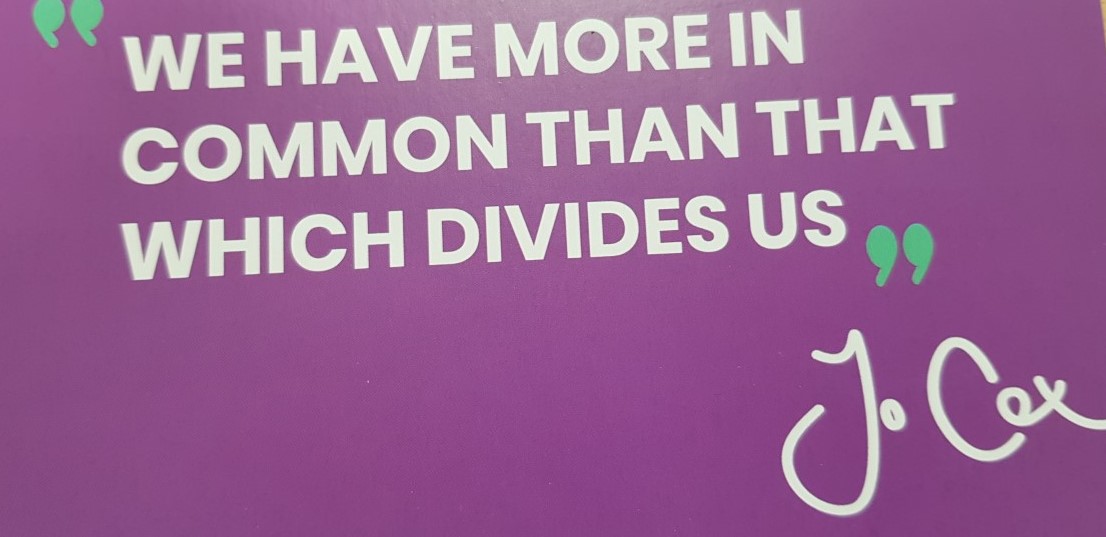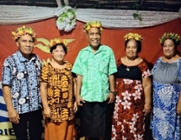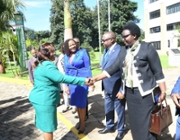Youth participation in local government

09 September 2021
The importance of ensuring that youth inclusion is enshrined in the practices of all councils and local government was the unanimous view at the third, and final Dialogue this week, as part of the Connecting the Dots project. Again, in line with the project funded by UK Aid, through the Jo Cox Memorial Fund, the issue of youth was focused on the four countries of Eswatini, Lesotho, Zambia and Zimbabwe.
More importantly are the views on how youth involvement can be promoted and sustained, particularly when 60% of the Commonwealth’s 2.4 billion population is under the age of 30.
As the important work towards achieving the SDGs continues, there has never been a more appropriate time to involve, and hear from young people in the development of our communities. The webinar’s facilitator, Gender Links' Monitoring & Evaluation Officer, Tapiwa Zvaraya, set the scene by explaining that, although this joint CLGF – Gender Links project is nearing an end, it is vital to look at ways of sustaining youth involvement in local government and service delivery, to ensure local services meet the needs of young people. How can we provide support, not just financially, but in terms of human and social support?
Masetetsane Nkhaba, from the Ministry of Local Government in Lesotho, kicked off the presentations by explaining that Lesotho has held a service day for young people. He stressed, however, that this dialogue was a real wake-up call, in terms of the urgency in involving young people in local government; and the great need to formalise strategies to ensure youth involvement. He went on to describe Lesotho’s ‘Gateway approach’, which is a guide for channeling issues through the districts for local delivery. He explained the requirement for at least 10% of all job vacancies to be filled by youth. He stressed that it was particularly important to have youth involvement in health-related issues and gender-based violence; and to develop other sector-specific areas where young people are put firmly at the centre of planning. Local government must be able to keep track of service delivery needs.
Josephine Kapinga, from Zambia’s local government association – LGAZ - agreed with these sentiments and the need for young people to understand more about local government services to be able to input. Zambia has several youth friendly platforms in which to raise issues and give feedback. Youth must be engaged in planning and implementation when councils are making these important decisions that directly affect them, and their futures. She said there is a good youth element to local politics in Zambia, but more structures, like youth councils, must be created to involve young people in all development issues, and to participate in all programmes. Local government must take ownership of this and build the capacity of youth to make meaningful contributions. She raised the issue of e-governance and extending it beyond the realms of WhatsApp, to suit the advanced techno-competences of youth. Junior councillor peer learning is also a helpful tool and formulating deliberate policies to enable young people.
The Executive Director of Zimbabwe’s National Junior Councils’ Association, Shingirirai Chikazhe, described how his organisation had a mandate to lobby and advocate for youth service delivery. Involving young people in the local service areas that affect them the most – for example, education, youth care, infrastructure and leisure facilities - is the most sensible thing to do, because of their experiences and understanding. He stressed the need for more youth involvement in budgeting and planning, including young councillors taking part in discussions around the areas and services that they think need improvement. Many young people are taking on junior mayoral positions, which are quite senior roles.
Gordon Mbuli from Eswatini’s local government association, described how the project has helped with youth involvement and tracking service delivery. Eswatini had been ahead of the game, in already having a number of junior councils, but lack of funding curtailed any progress. He expressed a need to set up national structures to give young people a voice, supported by clear policies and strategies. This must be instituted and formalised in all local authorities, ensuring youth voices are heard by tracking services. He agreed on the need for youth participation in budgetary processes and highlighted the vibrancy of youth and the enormous potential contribution they can make to local communities and local democracy.
Summing up
Final words from the presenters:
Lesotho’s Masetetsane Nkhaba suggested looking at decentralisation approaches for greater youth involvement; local government has to establish frameworks which ensure effective service delivery at all levels, and especially for those who are vulnerable. Young people have a focal position in local government’s relationships with particular ministries, for example, those of Education, Youth and Gender. Tasking team steering committees at village level will improve the national network and the quality of strategic conversations. Establishing youth service delivery days could help to assert the role of young people.
Zambia’s Josephine Kapinge succinctly added that, once elected, young councilors should be tenacious and recognise that they can represent, and speak on behalf of others and continue to support youth in local government.
Eswatini’s Gordon Mbuli said he was very encouraged by the dialogue. Perhaps if young people were persuaded to attend meetings, they could disseminate information more widely and encourage other young people to participate in meetings, get a sense of what happens and have their own views. However, he stressed, to be able to do this, funding is needed. Having already worked on a voluntary basis to train young people for next year’s local government elections, he expressed excitement and anticipation at the outcomes next year.
Zimbabwe’s Shingirirai Chikazhe ended by saying that, while every journey begins with one step, not every journey is easy. Young people need to be strong and united to reach their targets and never give up.
Ending the discussions, facilitator Tapiwa Zvaraya spoke of the need to raise awareness of youth involvement, using all existing platforms and possibly through a series of youth development days. There was certainly light at the end of the tunnel in sustaining networks beyond this programme and engaging with the organisations and institutions that can play an invaluable role in helping to increase youth participation.
CLGF Secretary-General, Lucy Slack, commented: “We are so grateful to the Jo Cox Memorial Fund for supporting this programme of political and economic empowerment across these four countries of Southern Africa. As we start to evaluate the impact of the Connecting the Dots project, the three dialogues this week - women’s participation in local government, Women and LED, and Young people in local government – all indicate that there is a great appetite to continue the work after the close of the project; and that this is only the beginning. It has been a fascinating week with very tangible recommendations for future action and I look forward to continued progress in all three areas.”
Back to News





